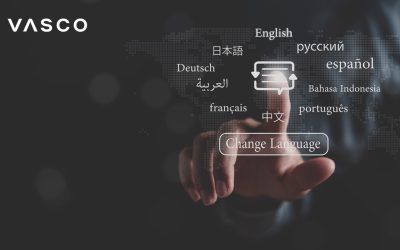Travelling with a premium translation device gives you the peace of mind to be understood in even the most faraway places.
FAQ:
What was the device that the protagonist used to communicate with the locals?
What did the locals want to do with the protagonist?
How did the protagonist feel about his experience in Indonesia?
It all happened in such a flash. One minute I was on my phone checking directions to the bus station, and the next the phone had been snatched out of my hand by someone on the back of a scooter. It took a second for the shock to subside and realise what had just happened – but when I turned my head, all I saw were the taillights of the scooter disappearing as it sped round the corner.
No big deal, I hear you say. Things like this happen all the time, and I should have been more careful. Other than the inconvenience of losing all my contacts and the cost of the replacing the actual phone, there was no harm done. I wasn’t hurt and I was still having an incredible time in an amazing country.
Although this would usually be case, once the actual shock had lifted, a sick feeling crept into the bottom of my stomach. And that’s when it hit me – my credit card and money were tucked away inside the mobile phone case.
Getting out of a pickle…
Of course, this could have happened anywhere – London, Rome, Bangkok – but when it happens in a remote Indonesian island off the coast of Sulawesi, it’s a different matter altogether.
I was back in the city of Kendari in the south-east of Sulawesi after spending time diving in the stunning Wakatobi National Park, before heading to Makassar, the capital of south Sulawesi. While Wakatobi itself is a well-known diving site, the city of Kendari itself didn’t have much tourist infrastructure other than a few run-down cockroach infested hotels. Needless to say I hadn’t met anyone that spoke much English and my Indonesian wasn’t really up to scratch.
After a couple deep breaths, I assessed the situation – I still had my passport, but when I checked my pockets, I only had some loose change, which wasn’t going to get me anywhere. How could I be so stupid, I kept telling myself – and then reminded myself not to panic.
A shopkeeper that had seen what had happened approached me and started speaking, pointing and gesticulating. I did my best to understand, and although I knew he was trying to help, I just couldn’t work out what he was saying. Someone else joined in and started pointing in a completely different direction. An argument followed, and within a couple of minutes a noisy crowd of onlookers had gathered all shouting and arguing about – presumably – the way to the police station.
… and being understood in a foreign language…
It was at that moment – in the heat of the crowd – that I remembered the small electronic device at the bottom of my rucksack that translates real-life conversations. My mum had bought it after I told her I was going to Indonesia, and had given me a demonstration before I left. I pulled out the device – a stylish two-way translator not much bigger than the mobile phone that had just been stolen – and switched it on.
I set it to Indonesian and spoke into it: “Can you help me?” I said. “Somebody has stolen my money and credit card.” The device repeated what I said in fluent Indonesian. Immediately the crowd stopped shouting. I gave the translator to the shopkeeper and prompted him to speak into it.
“Yes, yes,” he said. “My name is Fadhlan [which literally means “a gift from God”]. I can help you. Come to my house. My uncle is a policeman. Please come. My wife has made dinner. I invite you.” He took me by the arm and walked me through the murmuring crowd, into the back of the shop and up the stairs into his home, and his wife and children.
… is easy with a translation device
And the rest – as they say – is history. We ate dinner. Fadhlan’s policeman uncle arrived. And through using the translator, I was able to tell him the whole story of my phone and the men on the scooter. I was able to phone my family, who wired me some money, and organised a replacement credit card to be sent.
I stayed with Fadhlan and his extremely hospitable family for over three weeks until the card arrived. They showed me the sights of the city and we were able to communicate using the translator. By the end of my stay, I could even string a few sentences together – all thanks to my verbal translator. Despite losing my phone and money, this ended up being one of the best experiences of my life.
It was time to move on, but just as I was getting on the bus for my journey back to Makassar, I remembered something that had been bothering me. I spoke into the translator: “Tell me Fadhlan. On the day we first met, why was everybody shouting and arguing?”
“They all wanted you to come to their house,” he said. “They were arguing about who should have the honour of welcoming a foreigner into their home.”
I smiled and gave him a farewell hug – I liked Indonesia.
To learn more about how Vasco Translator Mini provides high-quality translations of real-life conversations in 51 languages, contact: support@vasco-electronics.com
In a nutshell:
While on vacation in Indonesia, the author’s phone is stolen, containing their credit card and money. They are directed to a translator device which helps them communicate that they need help. Fadhlan, a shopkeeper, takes them in and helps them to contact their family and get a new credit card. The author ends up staying with Fadhlan and his family for three weeks and learning some Indonesian.











